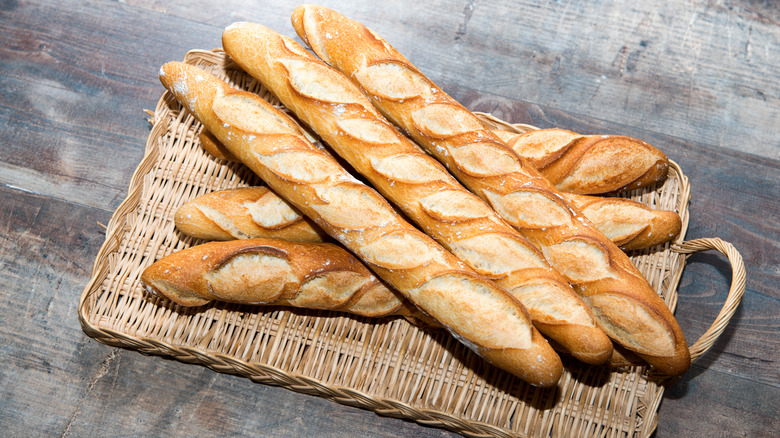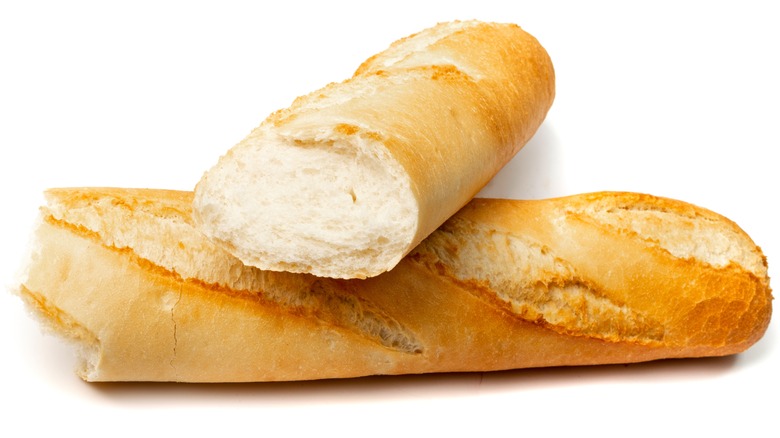The Cultural Milestone That The Classic French Baguette Just Achieved
Is there any bread more iconically French than the baguette? Flour, salt, water, and yeast turned into a long, crunchy loaf, this filling flute of food is beloved by many, as NPR notes. Whether eaten plain as a snack or adorned with toppings for a meal, it remains a cultural symbol of France.
The manner in which the baguette became a French celebrity is both mythical and debated. Per Complete France, one legend claims it was enjoyed by nobles shortly before the French Revolution, and the peasants' bread envy motivated them to rebel. Another myth, recounted by the BBC, says Napoleon requested the creation of stick-like bread so soldiers' rations could easily be carried toward battle. Meanwhile, some think a construction project on the Paris metro — rife with conflict between coworkers — required a new bread be made, one which could be hand-torn instead of cut with a knife; that way, the sharp weapons could be banned from the tense worksite. Who's to say which tale is true?
Regardless, by the mid-1800s, steam ovens were introduced to France, and baking baguettes became easy. In the 1920s, a law restricting how early bakers could begin work encouraged the production of quick-to-bake baguettes for breakfast, thus increasing their popularity. As a result, baguettes became ubiquitous by the mid-1900s. However, over the past half-century or so, artisanal French bakeries have diminished in number, and the traditional baguette has begun to disappear alongside them.
UNESCO heritage status
Fortunately, French baguettes recently earned an official designation that lends it staying power. CNN reports that the French baguette has been granted a spot on UNESCO's list of Intangible Cultural Heritage. This means the craftsmanship that goes into baking French baguettes is now formally considered an important social tradition in humanity's history. Other foods found in that same category include Arabic coffee, Belgian beer, kimchi, the Mediterranean diet, and Neapolitan pizza. Traditional tea has also been recognized, per the BBC. Baguettes should prove to be good company.
"It's kind of a way of life," says Audrey Azoulay, director general of UNESCO, while discussing the bread. "It's a very important element of social cohesion ... It comes from history, and it has character, and it's important to [make] the public aware of this."
Even though 16 million baguettes are made in France per day, this authentic item has indeed been waning. This is due to the success of rival breads like sourdough and the spread of grocery chains that eschew artisanal baking. Meanwhile, around 400 traditional French bakeries close annually, says France's culture ministry (via NPR). So, French President Emmanuel Macron has been pushing for French baguettes to earn UNESCO heritage status for years now. Upon hearing the news, he declared baguettes were "250 grams of magic and perfection in our daily lives." There are even plans now for the French government to create "Open Bakehouse Day," a holiday designed to celebrate baguettes.
Baguettes are back in business!

